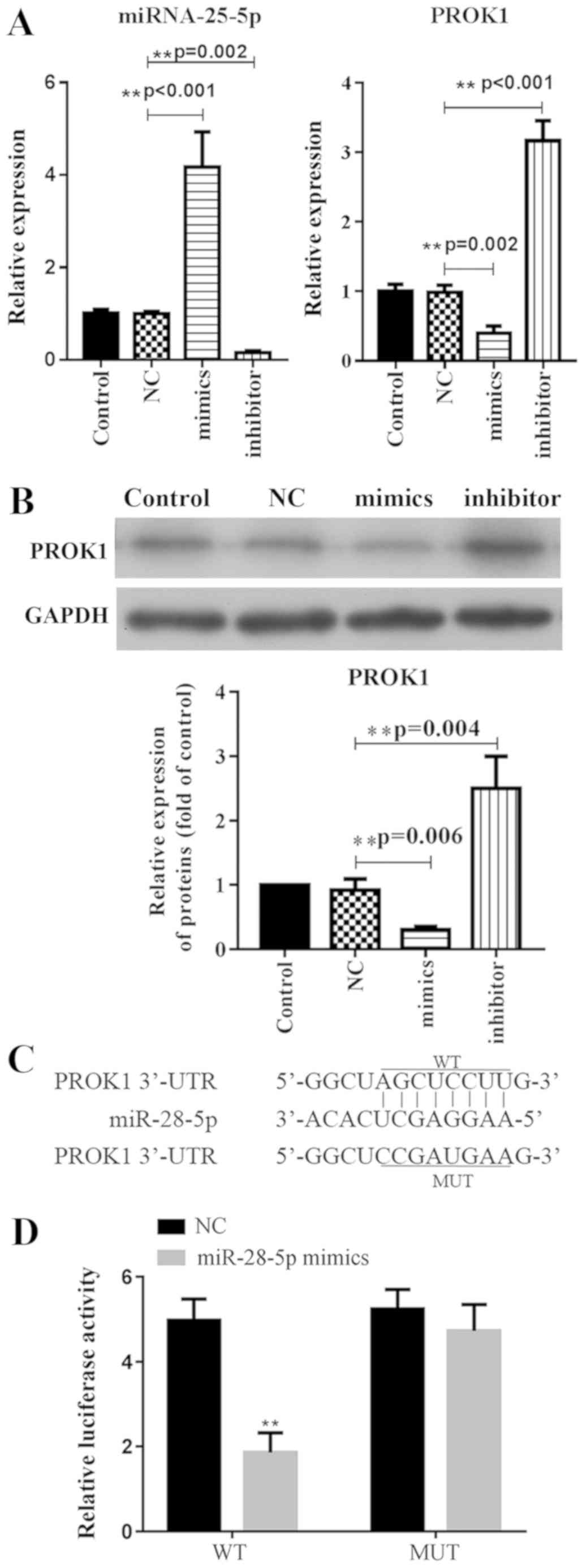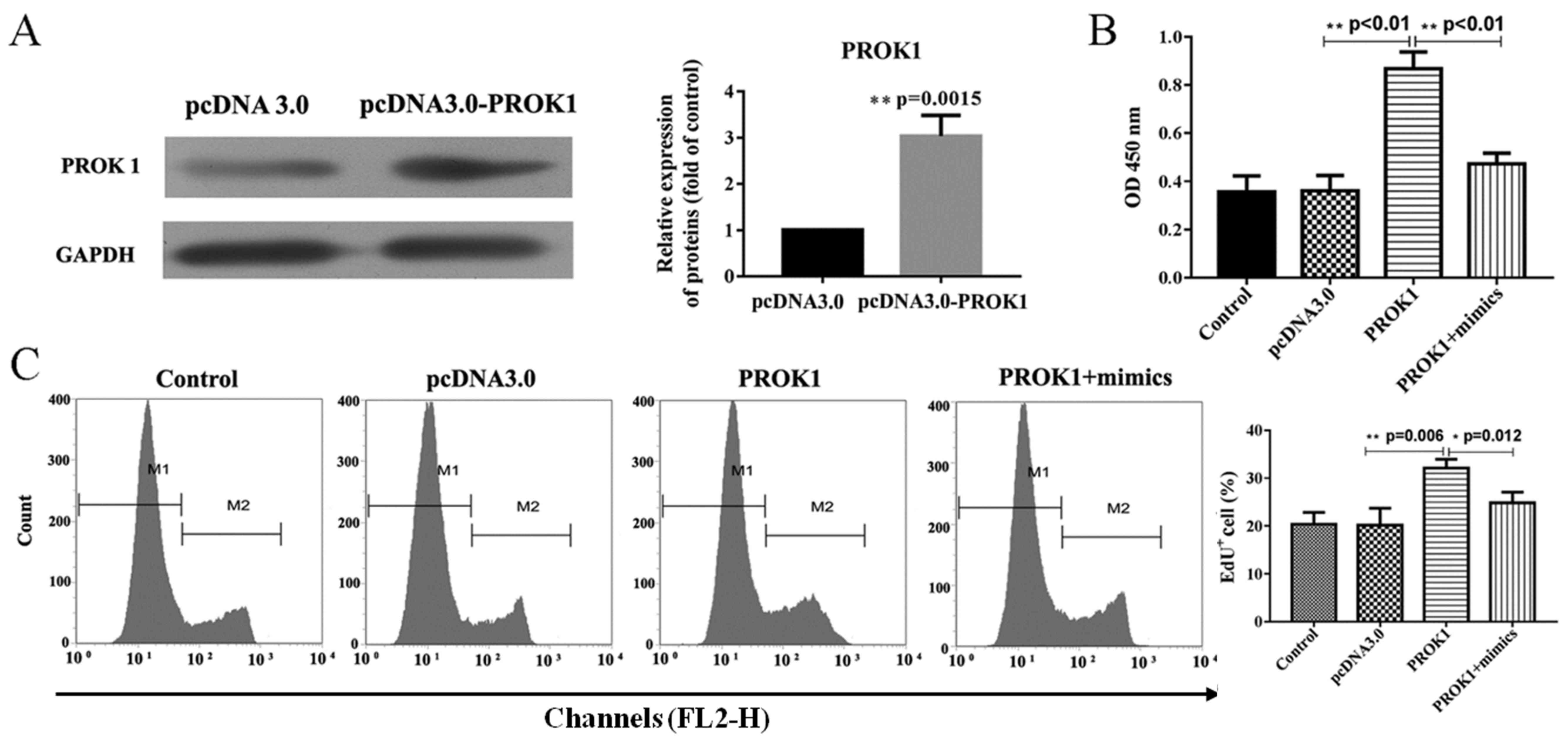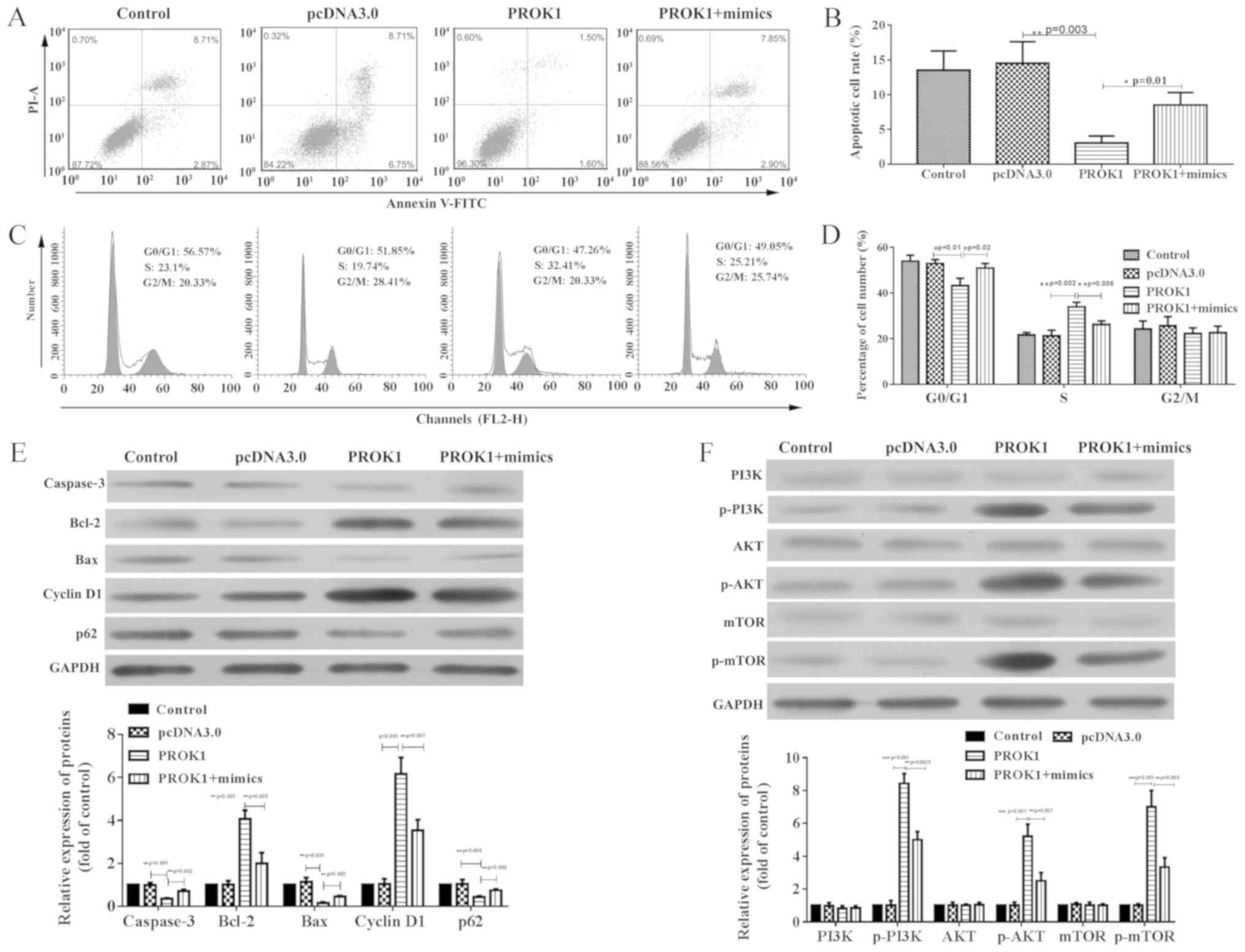|
1
|
Hull MG: Epidemiology of infertility and
polycystic ovarian disease: Endocrinological and demographic
studies. Gynecol Endocrinol. 1:235–245. 1987. View Article : Google Scholar : PubMed/NCBI
|
|
2
|
Knochenhauer ES, Key TJ, Kahsar-Miller M,
Waggoner W, Boots LR and Azziz R: Prevalence of the polycystic
ovary syndrome in unselected black and white women of the
southeastern United States: A prospective study. J Clin Endocrinol
Metab. 83:3078–3082. 1998. View Article : Google Scholar : PubMed/NCBI
|
|
3
|
Wajid S and Rashid N: miRNA signatures and
their potential role in PCOS. Int J Gen Cancer. 1:28–36. 2015.
|
|
4
|
Eser A, Hizli D, Namuslu M, Haltas H,
Kosus N, Kosus A and Kafali H: Protective effect of curcumin on
ovarian reserve in a rat ischemia model: An experimental study.
Clin Exp Obstet Gynecol. 44:453–457. 2017.PubMed/NCBI
|
|
5
|
Diamanti-Kandarakis E, Piperi C, Spina J,
Argyrakopoulou G, Papanastasiou L, Bergiele A and Panidis D:
Polycystic ovary syndrome: The influence of environmental and
genetic factors. Hormones (Athens). 5:17–34. 2006. View Article : Google Scholar : PubMed/NCBI
|
|
6
|
Brouillet S, Hoffmann P, Thomas-Cadi C,
Bergues U, Feige JJ, Alfaidy N and Hennebicq S: PROK1, prognostic
marker of embryo implantation? Gynecol Obstet Fertil. 41:562–565.
2013.(In French). View Article : Google Scholar : PubMed/NCBI
|
|
7
|
Lecouter J, Kowalski J, Foster J, Hass P,
Zhang Z, Dillard-Telm L, Frantz G, Rangell L, DeGuzman L, Keller
GA, et al: Identification of an angiogenic mitogen selective for
endocrine gland endothelium. Nature. 412:877–884. 2001. View Article : Google Scholar : PubMed/NCBI
|
|
8
|
Brouillet S, Hoffmann P, Feige JJ and
Alfaidy N: EG-VEGF: A key endocrine factor in placental
development. Trends Endocrinol Metab. 23:501–508. 2012. View Article : Google Scholar : PubMed/NCBI
|
|
9
|
Fraser HM and Duncan WC: Vascular
morphogenesis in the primate ovary. Angiogenesis. 8:101–116. 2005.
View Article : Google Scholar : PubMed/NCBI
|
|
10
|
Ferrara N, Frantz G, Lecouter J,
Dillard-Telm L, Pham T, Draksharapu A, Giordano T and Peale F:
Differential expression of the angiogenic factor genes vascular
endothelial growth factor (VEGF) and endocrine gland-derived VEGF
in normal and polycystic human ovaries. Am J Pathol. 162:1881–1893.
2003. View Article : Google Scholar : PubMed/NCBI
|
|
11
|
Alfaidy N, Hoffmann P, Boufettal H, Samouh
N, Aboussaouira T, Benharouga M, Feige JJ and Brouillet S: The
multiple roles of EG-VEGF/PROK1 in normal and pathological
placental angiogenesis. Biomed Res Int. 2014:4519062014. View Article : Google Scholar : PubMed/NCBI
|
|
12
|
Voorhoeve PM, le Sage CL, Schrier M,
Gillis AJ, Stoop H, Nagel R, Liu YP, van Duijse J, Drost J,
Griekspoor A, et al: A genetic screen implicates miRNA-372 and
miRNA-373 as oncogenes in testicular germ cell tumors. Cell.
124:1169–1181. 2006. View Article : Google Scholar : PubMed/NCBI
|
|
13
|
Takanabe R, Ono K, Abe Y, Takaya T, Horie
T, Wada H, Kita T, Satoh N, Shimatsu A and Hasegawa K: Up-regulated
expression of microRNA-143 in association with obesity in adipose
tissue of mice fed high-fat diet. Biochem Biophys Res Commun.
376:728–732. 2008. View Article : Google Scholar : PubMed/NCBI
|
|
14
|
Murri M, Insenser M, Fernández-Durán E,
San-Millán JL and Escobar-Morreale HF: Effects of polycystic ovary
syndrome (PCOS), sex hormones, and obesity on circulating miRNA-21,
miRNA-27b, miRNA-103, and miRNA-155 expression. J Clin Endocrinol
Metab. 98:E1835–E1844. 2013. View Article : Google Scholar : PubMed/NCBI
|
|
15
|
Arancio W, Calogero Amato M, Magliozzo M,
Pizzolanti G, Vesco R and Giordano C: Serum miRNAs in women
affected by hyperandrogenic polycystic ovary syndrome: The
potential role of miR-155 as a biomarker for monitoring the
estroprogestinic treatment. Gynecol Endocrinol. 34:704–708. 2018.
View Article : Google Scholar : PubMed/NCBI
|
|
16
|
Almeida MI, Nicoloso MS, Zeng L, Ivan C,
Spizzo R, Gafà R, Xiao L, Zhang X, Vannini I, Fanini F, et al:
Strand-specific miR-28-5p and miR-28-3p have distinct effects in
colorectal cancer cells. Gastroenterology. 142:886–896. 2012.
View Article : Google Scholar : PubMed/NCBI
|
|
17
|
Rizzo M, Berti G, Russo F, Evangelista M,
Pellegrini M and Rainaldi G: The miRNA pull out assay as a method
to validate the mir-28-5p targets identified in other tumor
contexts in prostate cancer. Int J Genomics. 2017:52148062017.
View Article : Google Scholar : PubMed/NCBI
|
|
18
|
Shi X and Teng F: Down-regulated miR-28-5p
in human hepatocellular carcinoma correlated with tumor
proliferation and migration by targeting insulin-like growth
factor-1 (IGF-1). Mol Cell Biochem. 408:283–293. 2015. View Article : Google Scholar : PubMed/NCBI
|
|
19
|
Xu J, Jiang N, Shi H, Zhao S, Yao S and
Shen H: miR-28-5p promotes the development and progression of
ovarian cancer through inhibition of N4BP1. Int J Oncol. 2017.(Epub
ahead of print). View Article : Google Scholar
|
|
20
|
Hughesdon PE: Morphology and morphogenesis
of the Stein-Leventhal ovary and of so-called ‘hyperthecosis’.
Obstet Gynecol Surv. 37:59–77. 1982. View Article : Google Scholar : PubMed/NCBI
|
|
21
|
Morita Y and Tilly JL: Oocyte apoptosis:
Like sand through an hourglass. Dev Biol. 213:1–17. 1999.
View Article : Google Scholar : PubMed/NCBI
|
|
22
|
Kim EJ, Jang M, Choi JH, Park KS and Cho
IH: An improved dehydroepiandrosterone-induced rat model of
polycystic ovary syndrome (PCOS): Post-pubertal improve PCOS's
features. Front Endocrinol (Lausanne). 9:7352018. View Article : Google Scholar : PubMed/NCBI
|
|
23
|
Kilkenny C, Browne WJ, Cuthill IC, Emerson
M and Altman DG: Improving bioscience research reporting: The
ARRIVE guidelines for reporting animal research. PLoS One.
8:10004122010. View Article : Google Scholar
|
|
24
|
Schmittgen TD: Real-time quantitative PCR.
Methods. 25:383–385. 2001. View Article : Google Scholar : PubMed/NCBI
|
|
25
|
Agarwal V, Bell GW, Nam JW and Bartel DP:
Predicting effective microRNA target sites in mammalian mRNAs.
Elife. 4:2015. View Article : Google Scholar
|
|
26
|
Ma HX, Xie J and Lai MH: Effects of
yangling zhongyu decoction on the secretion of ovarian granule
cells in polycystic ovarian syndrome rat model. Zhongguo Zhong Xi
Yi Jie He Za Zhi. 32:54–57. 2012.(In Chinese). PubMed/NCBI
|
|
27
|
Chi XX, Zhang T, Chu XL, Zhen JL and Zhang
DJ: The regulatory effect of genistein on granulosa cell in ovary
of rat with PCOS through Bcl-2 and Bax signaling pathways. J Vet
Med Sci. 80:1348–1355. 2018. View Article : Google Scholar : PubMed/NCBI
|
|
28
|
Tutar Y: miRNA and cancer; Computational
and experimental approaches. Curr Pharm Biotechnol. 15:4292014.
View Article : Google Scholar : PubMed/NCBI
|
|
29
|
Wang WT and Chen YQ: Circulating miRNAs in
cancer: From detection to therapy. J Hematol Oncol. 7:862014.
View Article : Google Scholar : PubMed/NCBI
|
|
30
|
Wang C, Wu C, Yang Q, Ding M, Zhong J,
Zhang CY, Ge J, Wang J and Zhang C: miR-28-5p acts as a tumor
suppressor in renal cell carcinoma for multiple antitumor effects
by targeting RAP1B. Oncotarget. 7:73888–73902. 2016.PubMed/NCBI
|
|
31
|
Hell MP, Thoma CR, Fankhauser N,
Christinat Y, Weber TC and Krek W: miR-28-5p promotes chromosomal
instability in VHL-associated cancers by inhibiting Mad2
translation. Cancer Res. 74:2432–2443. 2014. View Article : Google Scholar : PubMed/NCBI
|
|
32
|
Amirkhah R, Schmitz U, Linnebacher M,
Wolkenhauer O and Farazmand A: MicroRNA-mRNA interactions in
colorectal cancer and their role in tumor progression. Genes
Chromosomes Cancer. 54:129–141. 2015. View Article : Google Scholar : PubMed/NCBI
|
|
33
|
Giza DE, Vasilescu C and Calin GA:
MicroRNAs and ceRNAs: Therapeutic implications of RNA networks.
Expert Opin Boil Ther. 14:1285–1293. 2014. View Article : Google Scholar
|
|
34
|
Devaraj S and Natarajan J: miRNA-mRNA
network detects hub mRNAs and cancer specific miRNAs in lung
cancer. In Silico Boil. 11:281–295. 2011.
|
|
35
|
Huang X, Liu C, Hao C, Tang Q, Liu R, Lin
S, Zhang L and Yan W: Identification of altered microRNAs and mRNAs
in the cumulus cells of PCOS patients: MiRNA-509-3p promotes
oestradiol secretion by targeting MAP3K8. Reproduction.
151:643–655. 2016. View Article : Google Scholar : PubMed/NCBI
|
|
36
|
Song J, Luo S and Li SW: miRNA-592 is
downregulated and may target LHCGR in polycystic ovary syndrome
patients. Reprod Boil. 15:229–237. 2015. View Article : Google Scholar
|
|
37
|
Jiang YC and Ma JX: The role of MiR-324-3p
in polycystic ovary syndrome (PCOS) via targeting WNT2B. Eur Rev
Med Pharmacol Sci. 22:3286–3293. 2018.PubMed/NCBI
|
|
38
|
Jiang L, Huang J, Li L, Chen Y, Chen X,
Zhao X and Yang D: MicroRNA-93 promotes ovarian granulosa cells
proliferation through targeting CDKN1A in polycystic ovarian
syndrome. J Clin Endocrinol Metab. 100:E729–E738. 2015. View Article : Google Scholar : PubMed/NCBI
|
|
39
|
Xiang Y, Song Y, Li Y, Zhao D, Ma L and
Tan L: miR-483 is down-regulated in polycystic ovarian syndrome and
inhibits KGN cell proliferation via targeting insulin-like growth
factor 1 (IGF1). Med Sci Monit. 22:3383–3393. 2016. View Article : Google Scholar : PubMed/NCBI
|
|
40
|
Agrawal R, Jacobs H, Payne N and Conway G:
Concentration of vascular endothelial growth factor released by
cultured human luteinized granulosa cells is higher in women with
polycystic ovaries than in women with normal ovaries. Fertil
Steril. 78:1164–1169. 2002. View Article : Google Scholar : PubMed/NCBI
|
|
41
|
Lin R, Lecouter J, Kowalski J and Ferrara
N: Characterization of endocrine gland-derived vascular endothelial
growth factor signaling in adrenal cortex capillary endothelial
cells. J Biol Chem. 277:8724–8729. 2002. View Article : Google Scholar : PubMed/NCBI
|
|
42
|
Murray JD: On the mechanochemical theory
of biological pattern formation with application to vasculogenesis.
C R Biol. 326:239–252. 2003. View Article : Google Scholar : PubMed/NCBI
|
|
43
|
Bertoli C, Skotheim JM and de Bruin RA:
Control of cell cycle transcription during G1 and S phases. Nat Rev
Mol Cell Boil. 14:518–528. 2013. View Article : Google Scholar
|
|
44
|
Karamysheva Z, Diaz-Martinez LA,
Warrington R and Yu H: Graded requirement for the spliceosome in
cell cycle progression. Cell Cycle. 14:1873–1883. 2015. View Article : Google Scholar : PubMed/NCBI
|
|
45
|
Lim S and Kaldis P: Cdks, cyclins and
CKIs: Roles beyond cell cycle regulation. Development.
140:3079–3093. 2013. View Article : Google Scholar : PubMed/NCBI
|
|
46
|
Aleem E and Arceci RJ: Targeting cell
cycle regulators in hematologic malignancies. Front Cell Dev Biol.
3:162015. View Article : Google Scholar : PubMed/NCBI
|
|
47
|
Li H, Peng X, Wang Y, Cao S, Xiong L, Fan
J, Wang Y, Zhuang S, Yu X and Mao H: Atg5-mediated autophagy
deficiency in proximal tubules promotes cell cycle G2/M arrest and
renal fibrosis. Autophagy. 12:1472–1486. 2016. View Article : Google Scholar : PubMed/NCBI
|
|
48
|
Zhang J, Yang Z and Dong J: P62: An
emerging oncotarget for osteolytic metastasis. J Bone Oncol.
5:30–37. 2016. View Article : Google Scholar : PubMed/NCBI
|
|
49
|
Hassan M, Watari H, AbuAlmaaty A, Ohba Y
and Sakuragi N: Apoptosis and molecular targeting therapy in
cancer. Biomed Res Int. 2014:1508452014. View Article : Google Scholar : PubMed/NCBI
|
|
50
|
Kuwana T and Newmeyer DD: Bcl-2-family
proteins and the role of mitochondria in apoptosis. Curr Opin Cell
Biol. 15:691–699. 2003. View Article : Google Scholar : PubMed/NCBI
|
|
51
|
Porter AG and Janicke RU: Emerging roles
of caspase-3 in apoptosis. Cell Death Differ. 6:99–104. 1999.
View Article : Google Scholar : PubMed/NCBI
|
|
52
|
Breckenridge DG and Xue D: Regulation of
mitochondrial membrane permeabilization by BCL-2 family proteins
and caspases. Curr Opin Cell Biol. 16:647–652. 2004. View Article : Google Scholar : PubMed/NCBI
|
|
53
|
Zhao Y, Zhang C, Huang Y, Yu Y, Li R, Li
M, Liu N, Liu P and Qiao J: Upregulated expression of WNT5a
increases inflammation and oxidative stress via PI3K/AKT/NF-kB
signaling in the granulosa cells of PCOS patients. J Clin
Endocrinol Metab. 100:201–211. 2015. View Article : Google Scholar : PubMed/NCBI
|
|
54
|
Zhao Y, Qiao J, Zhang C, Huang Y and Liu
P: Increased WNT5a expression upregulates inflammation via
PI3K/AKT/NF-κB signaling in the granulosa cells of PCOS patients.
Fertility Sterility. 102 (Suppl 3):e27–e28. 2014. View Article : Google Scholar
|
|
55
|
Xin MA and Wang R: Endometrial lesions
mechanisms for insulin to promote PCOS through PI3K/AKT/GSK3
pathways in PCOS patient. Labeled Immunoassays Clin Med.
22:3302015.
|
|
56
|
Weickert MO, Hodges P, Tan BK and Randeva
HS: Neuroendocrine and endocrine dysfunction in the
hyperinsulinemic PCOS patient: The role of metformin. Minerva
Endocrinol. 37:25–40. 2012.PubMed/NCBI
|
|
57
|
Karar J and Maity A: PI3K/AKT/mTOR pathway
in angiogenesis. Front Mol Neurosci. 4:512011. View Article : Google Scholar : PubMed/NCBI
|

















